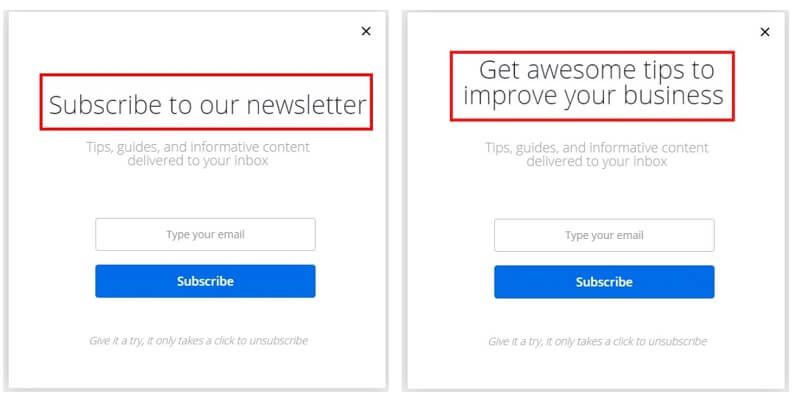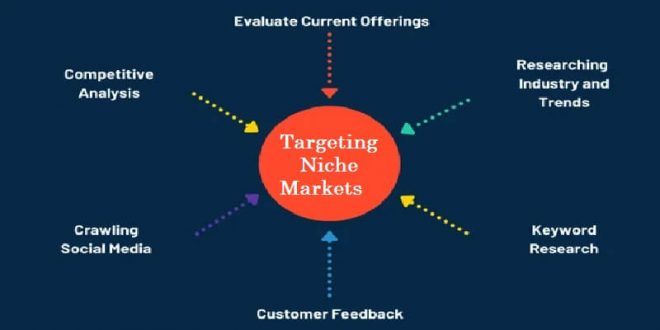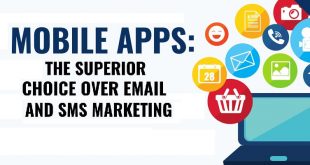In today’s fiercely competitive software industry, successful marketing campaigns necessitate a comprehensive understanding of the target audience. While targeting a broad market may seem attractive at first, capturing the attention of specialized audiences can significantly enhance brand recognition, customer loyalty, and ultimately, revenue growth. This blog post delves into the world of targeting niche markets and explores the benefits, challenges, and strategies for effectively tailoring software marketing campaigns to specialized audiences based on detailed user analysis.
Exploring the World of Niche Markets
In a market flooded with countless software options, standing out from the crowd is crucial for the success of any software product. As businesses strive to differentiate themselves, identifying niche markets comes to the forefront.
A niche market comprises a subset of potential customers who possess unique characteristics, needs, and preferences that differ from the broader consumer base. By focusing on these specialized audiences, software companies can create tailored marketing strategies that resonate deeply with their target market.
To embark on a successful journey into niche markets, meticulous user analysis must be performed. User analysis involves gathering comprehensive data about the target audience, including their demographics, psychographics, and behavioral patterns.
Leveraging this data provides a solid foundation for developing marketing campaigns that will effectively engage and persuade specific niche audiences.
The Benefits of Targeting Niche Markets
Here, we delve into the compelling advantages of targeting niche markets for software marketing campaigns. By zeroing in on specific subsets of users, software companies can leverage these benefits to accelerate growth and drive market dominance.
Reduced Competition
Targeting a niche market often means a narrower competitive landscape compared to a broader market segment. With fewer direct competitors, software companies have the opportunity to establish a stronger foothold and become the go-to solution for that specialized audience.
Greater Brand Recognition
When a software product is tailored to meet the unique needs of a specific niche market, it can gain significant traction and recognition within that community. This organic growth fosters a positive brand image and enhances brand recall; establishing a sense of trust and credibility among the target audience.
Enhanced Customer Loyalty
By focusing on a niche market, software companies can develop deeper relationships with their customers.
A tailored approach enables personalized communication, addressing the unique pain points and requirements of the audience. This fosters a sense of loyalty from customers, leading to higher retention rates and increased lifetime value.
Overcoming Challenges in Targeting Niche Markets
While targeting niche markets offers various advantages, it is not without its challenges. In this section, we discuss the key hurdles that software companies may encounter and explore strategies to overcome them.
Limited Market Size
Niche markets, by definition, encompass a smaller pool of potential customers compared to broader markets. This often necessitates tight-knit, highly focused marketing efforts.
However, with proper user analysis and effective targeting, software companies can maximize their market penetration and profitability even within a limited market size.
Research and Data Collection
To effectively reach and engage niche audiences, accurate user analysis is essential. Obtaining detailed data about the specific needs, pain points, and preferences of these audiences may prove challenging.
However, employing advanced research techniques, including surveys, interviews, and market research tools; can help gather valuable insights and refine marketing strategies accordingly.
Customized Messaging
One of the most critical challenges in targeting niche markets lies in crafting tailored messaging that resonates with the specific audience.
Software companies must understand the unique language, jargon, and communication styles of their niche market to ensure their marketing materials effectively connect with potential customers.
This requires meticulous content creation and brand messaging strategies that align with the values, goals, and aspirations of the specialized audience.
Strategies for Effective Software Marketing to Niche Audiences
To capitalize on the potential offered by niche markets, software companies must adopt specific strategies to effectively market their products to the specialized audience. Here, we explore proven tactics to ensure successful penetration and growth in niche markets.
Refine Your Product Offering
To cater to a niche market, software products need to align closely with the specific requirements and pain points of the audience. Conducting user analysis helps identify gaps in the market and tailor the software’s features and functionalities to address those needs; giving your product a competitive edge.
Personalize User Experiences
Customizing the user experience is crucial when targeting niche markets. From the moment users interact with the software, ensure a seamless, intuitive experience that caters to the specific preferences and workflows relevant to the niche audience. This personal touch creates a deep connection and fosters user loyalty.
Utilize Influencer Marketing
In niche markets, influencers play a vital role in shaping opinions and driving purchasing decisions. Collaborating with influencers who have established credibility within the niche market can significantly amplify brand exposure and generate interest, creating a snowball effect of increased awareness and user engagement.
Leverage Content Marketing
High-quality, industry-specific content is a powerful tool for engaging niche markets. By providing valuable insights, addressing pain points, and offering solutions through content marketing; software companies can position themselves as thought leaders within the niche; driving both brand recognition and customer trust.
Case Studies: Success in Niche Software Marketing
This section provides real-world examples of software companies that have successfully targeted niche markets, achieved impressive results, and reaped the benefits of specialized audience marketing.
Case Study: Monday
Monday, a customer relationship management (CRM) software provider, identified a niche market within the healthcare industry. By tailoring their CRM solution specifically for healthcare providers and hospitals; Monday successfully captured a significant share of the market.
Their personalized marketing campaigns showcased how their software streamlined patient management and data privacy compliance, leading to a 30% increase in revenue within the first year.
Case Study: Jira
Jira, a project management software company, recognized the potential in targeting small architectural firms. By conducting thorough user analysis; they understood the unique challenges architects faced and developed a software solution specifically designed for their needs.
This niche marketing strategy enabled Jira to penetrate the market deeply, resulting in a 40% increase in market share within two years.
The Role of Data Analysis in Niche Software Marketing
Data analysis is a crucial aspect of successfully targeting niche markets in software marketing. It allows software companies to gain deep insights into the behavior, preferences, and trends within the specialized audience. Here, we explore the significance of data analysis and how it can drive informed decision-making in niche software marketing.
Tracking User Engagement
Through data analysis, software companies can track user engagement metrics such as click-through rates, time spent on specific features, and conversion rates. By analyzing this data, companies can gain valuable insights into user preferences, which can then be used to optimize marketing efforts and improve user experiences.
A/B Testing and Optimization
Data analysis enables software companies to conduct A/B testing; where two versions of a marketing campaign or software feature are compared to determine which performs better. By analyzing the results, companies can identify the most effective strategies and make data-driven decisions to optimize their marketing campaigns for niche audiences.

Predictive Analytics
Predictive analytics involves using historical data to make predictions about future user behavior. By leveraging data analysis techniques, software companies can identify patterns, trends, and correlations that can help them make informed decisions on future marketing strategies. This allows for proactive targeting of the niche audience’s evolving needs and preferences.
Continuously Evolving Strategies in Niche Software Marketing
Niche software marketing is not a one-time effort; it requires continuous adaptation and evolution to stay relevant and competitive. In this section, we discuss the importance of constantly refining strategies and staying abreast of market trends.
Stay Updated on Market Trends
Niche markets are often dynamic, with evolving needs and preferences. It is crucial for software companies to stay updated on the latest industry trends, technological advancements, and changing regulations to effectively meet the demands of the niche audience. This can be achieved through ongoing market research, competitor analysis, and engaging with industry thought leaders.
Monitor User Feedback
Regularly collecting and analyzing user feedback is vital in niche software marketing. User feedback provides valuable insights into how well the software is meeting the specialized audience’s needs and what improvements can be made.
By actively listening to the niche audience and incorporating their feedback into product development and marketing strategies; software companies can foster loyalty and continually improve their offerings.
Conclusion
In the ever-evolving software industry, targeting niche markets is increasingly becoming a key to success. Investing the time and resources into user analysis; understanding the specific needs of a specialized audience, and crafting tailored marketing strategies can unlock unparalleled growth, customer loyalty, and brand recognition for software companies.
By harnessing the power of targeting niche markets; software marketers can redefine the industry and pave the way for industry disruption while catering to the unique needs of specialized users.
 Free Web Resources , psd, mockups, & web templates Best WordPress Themes & Best Html Templates
Free Web Resources , psd, mockups, & web templates Best WordPress Themes & Best Html Templates








